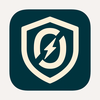In this hyper-connected digital age, the question "Am I hacked?" is increasingly relevant to everyone who uses the internet or smart devices. Hacking incidents are not limited to large corporations or government agencies; individuals are frequent targets due to the wealth of personal data stored on phones, computers, and online accounts. Recognizing whether you have been hacked is the crucial first step in mitigating damage and regaining control over your digital world.
This blog will guide you through clear warning signs that indicate if you might be hacked, common methods hackers use, and important actions to take immediately upon suspicion of a hack.
How Do You Know If You Are Hacked?
Hackers employ a variety of methods to gain unauthorized access to your devices and personal information. Their tactics range from sophisticated malware installations to simple social engineering tricks. While the signs of hacking can differ based on how the attack happened, multiple common symptoms may indicate a compromise.
1. Unusual Account Behavior
One of the earliest and clearest signs of hacking is unusual activity on your online accounts. These accounts include email, social media, bank apps, and cloud storage. Indicators include:
Sudden inability to log in due to changed passwords
Unexpected password reset emails or lockouts
Unrecognized changes to account settings like contact information or security questions
Emails or messages being sent without your knowledge, including spam or phishing links
Notifications about login attempts from unfamiliar locations or devices
If you notice any of these, it’s possible a hacker gained control of your account and may be using it to access further information or target your contacts for scams.

2. Device Performance Problems
Malware infections often use your system’s resources in the background, causing slowdowns. Signs include:
Noticeably slower apps, programs, or device startup
Unexpected crashes or freezes
Overheating or unusual battery drain on smartphones and laptops
Excessive data usage spikes caused by spyware transmitting your info to hackers
Mysterious pop-ups, ads, or app installations you didn’t authorize
Such symptoms can indicate your device is compromised by malware, spyware, or crypto-mining software that hackers use to hijack resources for their benefit.
3. Unauthorized Financial Activities
Financial accounts are prime targets for hackers. Watch out for:
Unrecognized charges or transfers from bank or credit card accounts
Suspicious cryptocurrency wallet transactions
Notifications from financial institutions about password resets or account access that you did not initiate
These are serious red flags indicating your financial accounts or credentials have been compromised, potentially leading to identity theft or monetary loss.
4. Strange Device Behavior at Night or When Idle
If your computer or phone cursor moves on its own, files appear or disappear, or your webcam light turns on unexpectedly, it could mean a hacker has a remote access tool installed that lets them control your device unnoticed. Background noise during calls or mysterious SMS messages sent from your device are also warning signs.
5. Security Tools Disabled or Missing
Hackers often try to disable antivirus programs, firewalls, or system monitoring tools to avoid detection. If you suddenly find your security software missing, disabled, or not updating, that’s an alert that your device might be compromised.
How Hackers Commonly Gain Access
Understanding how hackers get in can help you guard against attacks:
Phishing: Deceptive emails or texts tricking you into revealing passwords or downloading malware
Weak Credentials: Using easy-to-guess or reused passwords makes it easier for hackers to break in
Unpatched Software: Exploiting vulnerabilities in outdated operating systems or apps
Public Wi-Fi Eavesdropping: Intercepting data over unsecured networks
Malicious Apps: Installing spyware or ransomware through fake or hacked apps
Education and vigilance are key to prevention.
Immediate Steps to Take If You Suspect You Are Hacked
If you believe you are hacked, quick action can limit damage:
Change Your Passwords Immediately: Use a secure device to change passwords on important accounts first (email, bank, social media). Avoid using the compromised device to prevent password capture by malware.
Enable Multi-Factor Authentication (MFA): Add an extra layer of security requiring a second verification step, such as a code from your phone or biometrics.
Run a Full Malware Scan: Use trusted antivirus or anti-malware software to detect and remove malicious programs.
Disconnect from the Internet: Temporarily disable Wi-Fi or data connections to stop further data theft or hacker communication.
Check Account Activity: Review recent activity logs on your accounts for suspicious logins or changes and alert providers if needed.
Warn Contacts: Inform friends, family, and professional contacts that your account was hacked so they don’t fall victim to phishing or scams from your compromised accounts.
Consider a Factory Reset: If malware persists after cleaning, a full system reset may be necessary, but back up essential data securely first.
Preventive Measures to Avoid Getting Hacked
Avoiding hacks is always better than recovering from them. Use these best practices:
Use strong, unique passwords with a password manager
Keep software and devices updated regularly
Be cautious with suspicious emails, links, and downloads
Avoid public or unsecured Wi-Fi for sensitive activities
Use reputable antivirus and firewall software
Enable MFA on your accounts wherever possible
Regularly back up important data to offline or cloud storage
Conclusion
In a world increasingly dependent on digital connections, the risk of getting hacked is a reality for everyone. Understanding how to recognize the signs of hacking and respond swiftly can protect your data, finances, and reputation from devastating consequences. Stay informed, adopt strong cybersecurity habits, and act decisively if you suspect a hack to keep your digital life secure.






Top comments (0)